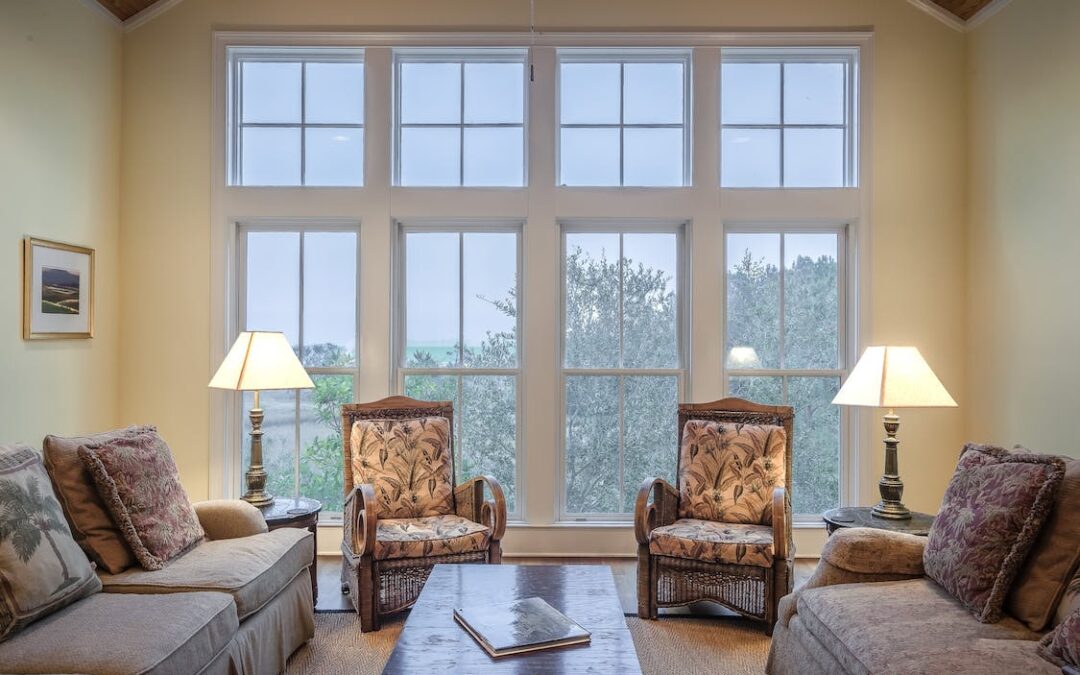Making your home more eco-friendly is a smart move, both for the planet and your wallet. Energy-efficient windows are a great place to start, as they lower your electricity bills and make your home more comfortable. Here’s a guide to help you make the best choices for your home:
Consider Window Styles and Materials
Choosing the right window style and material is crucial for building an energy-efficient home. You might need to upgrade if you’ve had issues with drafty windows or overheated rooms. Casement and awning-style windows often provide better insulation compared to sliding windows.
In terms of materials, the frame’s quality can affect the window’s overall insulation ability by up to 20%. Fiberglass frames tend to offer excellent durability and insulation, which is especially useful in regions with extreme weather. So, consider both style and material when shopping for energy-efficient windows.
Research the Most Efficient Ratings
Understanding window ratings is essential for finding the most energy-efficient options. Look for labels from ENERGY STAR and The National Fenestration Rating Council (NFRC) to compare products easily.
For cold climates, gas-filled windows with low-emissivity (Low-E) coatings can minimize heat loss. Opt for windows with solar control films in hotter areas to reduce heat gain. Important metrics to check are the U-factor, which tells you about a window’s insulation quality, and the Solar Heat Gain Coefficient (SHGC), which indicates how much solar heat the window lets in. These numbers can help you balance comfort and cost throughout the year.
Evaluate Glazing Options
While single-pane glass windows are generally less efficient, double- or triple-pane options offer better insulation. However, the number of panes alone doesn’t guarantee performance. Some multi-pane windows also contain insulating gases like argon or krypton. Also, consider Low-E glazing for additional UV protection and heat control.
Before you make a purchase, consult a professional to ensure that your chosen windows meet your specific needs and budget.
Assess the Frame Design
The design of your window frames significantly affects energy efficiency. Wooden frames offer good insulation but need regular maintenance. Vinyl frames are budget-friendly and also offer reasonable insulation, though they may warp over time.
Composite materials, which blend wood and plastic, offer durability and good insulation. Aluminum frames are strong but not great at insulating. Fiberglass frames are an excellent choice for durability and insulation, especially in extreme weather conditions.
Measure Performance Qualities
Look into various performance metrics like the U-factor for insulation and the SHGC for solar heat gain. Also, consider Air Leakage ratings, which indicate how well the window seals, and Visible Transmittance (VT), which tells you how much light the window allows. Another measure to check is Condensation Resistance, especially if you live in a region with significant seasonal changes.
Compare Prices for Different Brands
Cost is certainly a factor when shopping for energy-efficient windows, but it should not be the sole consideration. Check for certifications like ENERGY STAR to ensure you get a high-quality product. Also, consider any add-ons like reflective coatings, which could improve performance but increase costs.
Some companies offer discounts or rebates, so keep an eye out for those. While energy-efficient windows might seem expensive upfront, their long-term benefits usually outweigh the initial cost.
In Conclusion
Choosing energy-efficient windows is a rewarding investment for your home and the environment. Consider various factors like frame material, type of glass, and window design to optimize insulation and energy savings. And don’t forget, professional installation is crucial for maximizing your window’s efficiency. So, choose wisely and enjoy a more comfortable, eco-friendly home.

